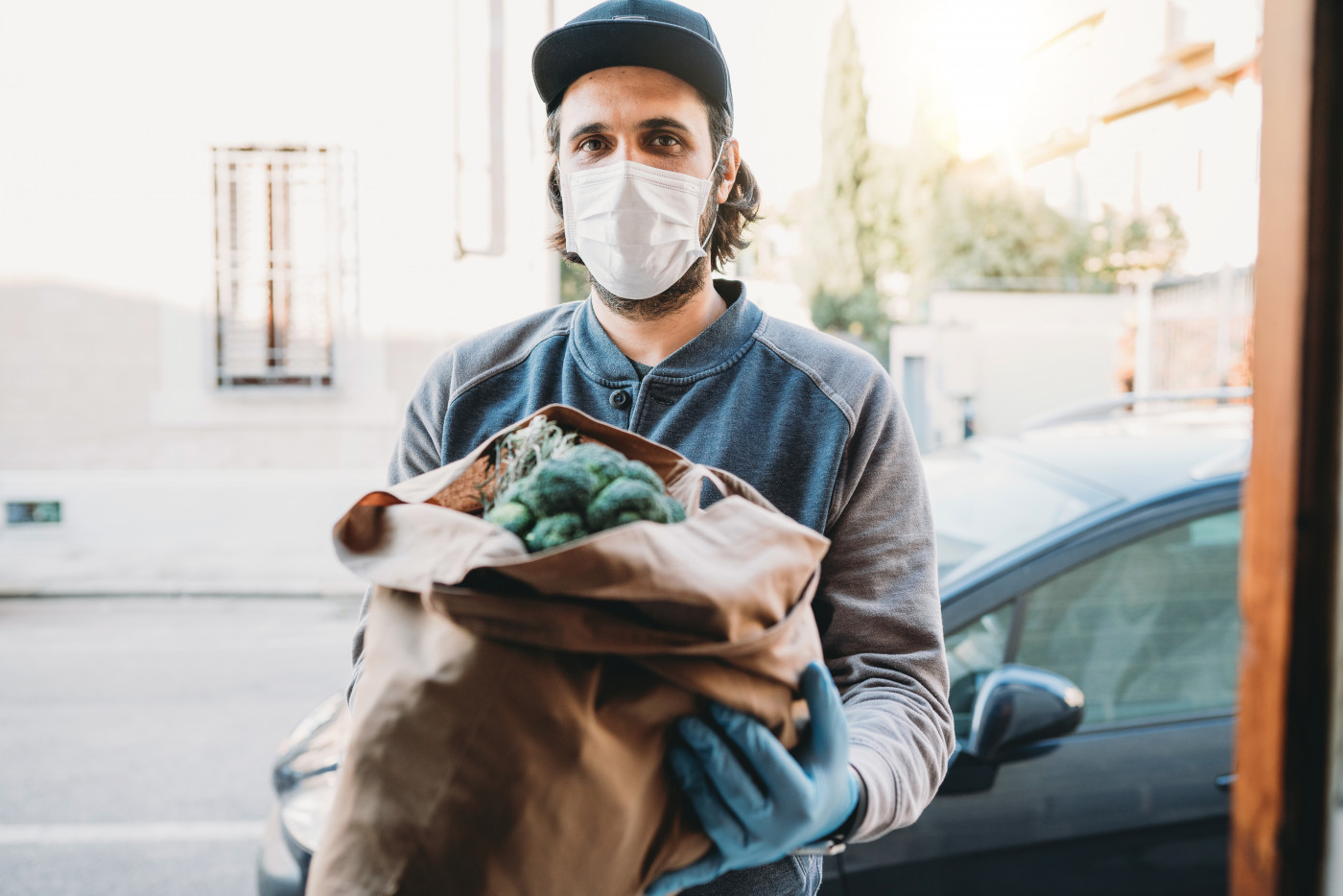Covid Christmas: The Rise of Ethical Consumption

For Christmas shopping under Covid, ethical consumerism is becoming both a real social issue and a strategic challenge for brands, whatever the size. This is at a time when small businesses are being hit hardest by a second wave of restrictions, while some large e‑commerce players are benefiting from them.
Shopping Responsibly
Once again this year, as an alternative to Black Friday, France's Make Friday Green Again initiative brings together 700 brands to mobilise citizens to make more sustainable choices when they shop this Christmas. Getty Images' Visual GPS study revealed that this issue matters to consumers: 81% of those surveyed expect companies to be environmentally aware in all their advertising communications.
This is also becoming an issue for small and medium‑sized businesses (SMEs), who must adapt to consumer demand with clear messages and visual communication that reflect not only their ecological and societal commitments, but how their business model is sustainable. Initiatives like Black Pound Day in the UK are meeting the rise of ethical consumers who want to support, for example, independent Black‑owned businesses. In this period of very difficult commercial times, approaches such as this can help build loyalty with customers who are looking to exercise ethical consumption at Christmas and increase sales during this significant retail time.
Once again this year, as an alternative to Black Friday, France's Make Friday Green Again initiative brings together 700 brands to mobilise citizens to make more sustainable choices when they shop this Christmas. Getty Images' Visual GPS study revealed that this issue matters to consumers: 81% of those surveyed expect companies to be environmentally aware in all their advertising communications.
This is also becoming an issue for small and medium‑sized businesses (SMEs), who must adapt to consumer demand with clear messages and visual communication that reflect not only their ecological and societal commitments, but how their business model is sustainable. Initiatives like Black Pound Day in the UK are meeting the rise of ethical consumers who want to support, for example, independent Black‑owned businesses. In this period of very difficult commercial times, approaches such as this can help build loyalty with customers who are looking to exercise ethical consumption at Christmas and increase sales during this significant retail time.
A company's visual identity is one of the most important channels to communicate a brand's stance on sustainability. In order to feature "real people" and fight against outdated social representations, Getty Images offers a new kind of data‑backed iconography around sustainability in partnership with Climate Visuals, the only global photography programme on climate change.
Sustainability and Inclusion
The subject of sustainability must be addressed in an inclusive way. Visuals that evoke the environment and sustainability should not be separated from those that illustrate inclusion and diversity. Climate change affects all the inhabitants of the planet, so it is important to represent it through all diversity: ethnic, social, age, sexual orientation, gender, religion or culture.
Start by bringing sustainability back to an individual level this Christmas time—make it personal and inclusive. Christmas visuals showing signs of overconsumption, such as wrapping paper and food waste, are popular tropes to illustrate climate change, but because they are over‑used, they have lost their impact. Illustrate new ethical consumption concepts in the context of Christmastime, such as the "circular economy," "reusable gifts" or "shopping local".
What does this look like? Some sustainable practices consumers adopt at home range from using beeswax wraps to store Christmas dinner leftovers, buying potted Christmas trees, with upcycled objects for decorations, or wrapping gifts with recycled paper or fabric. Independent businesses can support sustainable practices, too, by ditching single‑use plastics and encouraging refillable containers and cloth bags.
The subject of sustainability must be addressed in an inclusive way. Visuals that evoke the environment and sustainability should not be separated from those that illustrate inclusion and diversity. Climate change affects all the inhabitants of the planet, so it is important to represent it through all diversity: ethnic, social, age, sexual orientation, gender, religion or culture.
Start by bringing sustainability back to an individual level this Christmas time—make it personal and inclusive. Christmas visuals showing signs of overconsumption, such as wrapping paper and food waste, are popular tropes to illustrate climate change, but because they are over‑used, they have lost their impact. Illustrate new ethical consumption concepts in the context of Christmastime, such as the "circular economy," "reusable gifts" or "shopping local".
What does this look like? Some sustainable practices consumers adopt at home range from using beeswax wraps to store Christmas dinner leftovers, buying potted Christmas trees, with upcycled objects for decorations, or wrapping gifts with recycled paper or fabric. Independent businesses can support sustainable practices, too, by ditching single‑use plastics and encouraging refillable containers and cloth bags.
Actionable Insights:
- Positive Actions ‑ Focus on visuals that show concrete actions and positive measures that bring results, paving the way for a better, more sustainable Christmas.
- Real People ‑ Visuals must tell real stories of individuals who make small changes at Christmas time, or projects from communities and businesses that focus on responsible shopping. Show real people who have impact locally.
- Details are important ‑ Think about all the details of the image, video or illustration. Throwaway Christmas wrapping paper, plastic bags or single‑use takeaway coffee cups, for example, can discredit your ecological message.


